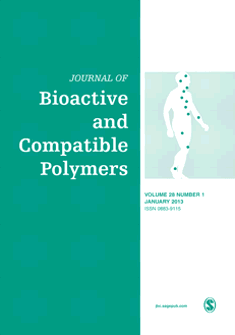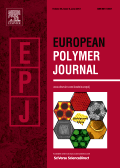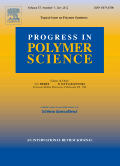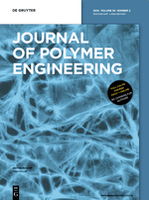
Carbohydrate Polymer Technologies and Applications
Scope & Guideline
Innovative Insights into Carbohydrate Polymer Technologies
Introduction
Aims and Scopes
- Biopolymer Synthesis and Modification:
Research on the synthesis and modification of carbohydrate polymers, including chitosan, cellulose, and alginate, to enhance their properties for specific applications. - Biomedical Applications:
Exploration of carbohydrate polymers in drug delivery systems, wound dressings, and tissue engineering, focusing on their biocompatibility and functionalization. - Environmental Applications:
Utilization of carbohydrate polymers for environmental remediation, including adsorption of pollutants and development of biodegradable materials. - Food Technology and Packaging:
Investigation into the use of carbohydrate polymers in food preservation, packaging materials, and the development of edible films, emphasizing their functional and antimicrobial properties. - Nanotechnology and Smart Materials:
Development of carbohydrate-based nanomaterials and their applications in various technological fields, including sensors and drug delivery systems.
Trending and Emerging
- Nanocellulose and Nanotechnology:
There is a growing interest in the use of nanocellulose and nanotechnology in various applications, including drug delivery systems, sensors, and advanced packaging materials, driven by their unique properties and sustainability. - Sustainable and Green Chemistry:
Research emphasizing sustainable practices in the synthesis and application of carbohydrate polymers is on the rise, reflecting global trends towards eco-friendly materials and processes. - Smart and Responsive Materials:
Emerging studies focus on developing smart materials that respond to environmental stimuli, such as pH or temperature changes, particularly in biomedical applications. - Functional Foods and Nutraceuticals:
There is an increasing emphasis on the role of carbohydrate polymers in functional foods and dietary supplements, particularly in relation to health benefits and bioactivity. - Advanced Drug Delivery Systems:
Research on innovative drug delivery systems utilizing polysaccharides, particularly for targeted and controlled release applications, is rapidly gaining traction.
Declining or Waning
- Traditional Applications of Starch:
Research focusing on traditional applications of starch in food and non-food products has decreased, as the field shifts towards more innovative and functional uses of polysaccharides. - Basic Characterization Studies:
There is a noticeable decline in publications solely dedicated to basic characterization of carbohydrate polymers without a clear application focus, as research becomes more application-driven. - Agricultural Applications:
Research exploring the use of carbohydrate polymers specifically in agricultural settings, such as soil amendments and fertilizers, has reduced as attention moves towards biomedicine and environmental applications. - Conventional Edible Films:
Interest in conventional edible films that do not incorporate nanotechnology or advanced modification techniques is waning, as researchers seek more innovative approaches to food packaging.
Similar Journals

INTERNATIONAL JOURNAL OF POLYMER ANALYSIS AND CHARACTERIZATION
Illuminating the complexities of polymeric materials.International Journal of Polymer Analysis and Characterization is a distinguished scholarly publication dedicated to the field of polymer science, with a focus on innovative methodologies and significant advances in the analysis and characterization of polymeric materials. Published by Taylor & Francis Ltd in the United Kingdom, this journal serves as a vital resource for researchers, professionals, and students deeply engaged in Analytical Chemistry, Chemical Engineering, and Polymer Science. With a convergence spanning from 1995 to 2024, it holds a Q3 ranking in the 2023 category quartiles for its valuable contributions to the fields of Analytical Chemistry, Chemical Engineering, and Polymers and Plastics. Despite being a non-open access publication, its rigorous peer-review process and comprehensive coverage of current trends ensure that the journal remains a crucial platform for disseminating impactful research. The journal is indexed in various databases, underscoring its relevance and quality in the academic community. Exploratory studies and articles that push the boundaries of polymer analysis find a welcoming home within these pages, making it an essential read for those aiming to stay at the forefront of polymer research.

Polysaccharides
Connecting Chemistry, Engineering, and Material SciencePolysaccharides is a leading academic journal published by MDPI, specializing in the interdisciplinary field of polysaccharide research. Since its inception in 2020, this Open Access journal aims to facilitate the dissemination of groundbreaking research in materials science, chemistry, and engineering. With an impressive ranking among the top-tier journals—holding the 29th position in Engineering, the 20th in Chemistry, and the 42nd in Materials Science according to Scopus—it offers a significant platform for researchers and professionals seeking to enrich their understanding of polysaccharides' properties, applications, and innovations. The journal welcomes contributions that advance knowledge in polysaccharide chemistry, structural analysis, and various applications in pharmaceuticals, food sciences, and biomaterials. Located in the heart of Basel, Switzerland, Polysaccharides is poised to be a critical resource for anyone looking to stay at the forefront of polysaccharide research and applications, with publications openly accessible to a global audience.

Polymer Chemistry
Exploring Innovative Solutions in Polymer ChemistryPolymer Chemistry is a premier peer-reviewed journal published by the Royal Society of Chemistry, focusing on cutting-edge research and developments in the field of polymer science. With its ISSN 1759-9954 and E-ISSN 1759-9962, this journal has established a significant impact within the academic community, as evidenced by its impressive Q1 ranking in areas such as Biomedical Engineering, Organic Chemistry, and Polymers and Plastics. Over its convergence period from 2010 to 2024, Polymer Chemistry has become an essential resource for researchers, professionals, and students, showcasing innovative studies that advance the understanding of polymer behavior and applications. The journal does not currently offer open access, allowing for a traditional but rigorous peer-review process ensuring high-quality publications. For those engaged in the rapidly evolving disciplines of biochemistry and bioengineering, Polymer Chemistry serves as a vital platform for disseminating influential findings and fostering interdisciplinary collaboration in a global context.

Polymers
Fostering collaboration in the world of polymers.Polymers is a premier journal published by MDPI, dedicated to advancing the field of polymer science and technology. This open-access journal, established in 2009, has quickly gained prominence in the academic community, serving as a vital platform for disseminating high-quality research articles, reviews, and communications in the realms of chemistry, polymers, and plastics. Based in Switzerland, with an impressive ranking in the Q1 quartile for both Chemistry and Polymer studies, Polymers boasts a significant impact factor, reflecting its rigorous peer-review process and esteemed editorial board. Researchers, professionals, and students alike benefit from the broad accessibility of content, allowing for a more extensive reach and engagement within the scientific community. As a key resource for the latest advancements and innovations in polymer research, Polymers continues to lead discussions, inspire collaborations, and foster the development of novel materials that shape various industrial applications.

Polymer Reviews
Illuminating the path of polymer research.Polymer Reviews, published by Taylor & Francis Inc, is an esteemed journal dedicated to the intricate and evolving field of polymer science. With its ISSN 1558-3724 and E-ISSN 1558-3716, the journal has established a significant presence among researchers and practitioners alike, evidenced by its impressive categorization in the Q1 quartiles across multiple disciplines, including Biomedical Engineering, Materials Chemistry, and Renewable Energy. Since its inception in 2006 and continuing through 2024, Polymer Reviews has consistently aimed to advance the knowledge base of polymer applications and innovations, providing a platform for comprehensive review articles that stimulate further research and inspire practical solutions. The journal, ranking within the top percentile across several Scopus categories, underscores its impact and relevance in a rapidly developing scientific landscape. Though not an open-access journal, it remains a vital resource for those invested in the future of materials science and engineering.

JOURNAL OF BIOACTIVE AND COMPATIBLE POLYMERS
Shaping Tomorrow's Technologies with Polymer InsightsJOURNAL OF BIOACTIVE AND COMPATIBLE POLYMERS, published by SAGE PUBLICATIONS LTD, serves as a pivotal platform for disseminating innovative research in the fields of bioengineering, biomaterials, materials chemistry, and polymers. With an ISSN of 0883-9115 and an E-ISSN of 1530-8030, this journal is committed to the advancement of knowledge relating to the interaction of polymers within biological systems and their compatibility in various applications. Operating since 1986, the journal has garnered a respectable presence, ranked in the Q3 quartile across multiple categories in 2023, indicating its relevance and contribution to these dynamic fields. Although not open access, the journal ensures that high-quality research is accessible to subscribers and institutions, reinforcing its importance for researchers, professionals, and students aiming to stay abreast of advancements in polymer science and biocompatibility. By fostering interdisciplinary communication and collaboration, the JOURNAL OF BIOACTIVE AND COMPATIBLE POLYMERS continues to play a crucial role in shaping the future of material applications in health, technology, and industry.

EUROPEAN POLYMER JOURNAL
Exploring the Frontiers of Polymer ResearchEUROPEAN POLYMER JOURNAL is a leading academic journal published by PERGAMON-ELSEVIER SCIENCE LTD, dedicated to advancing the field of polymer science and engineering. With a distinguished history since 1965, this journal serves as a critical platform for researchers to disseminate high-quality research findings within a broad scope that encompasses materials chemistry, organic chemistry, and physics. The journal boasts an impressive Q1 category ranking in multiple fields, including Materials Chemistry, Organic Chemistry, and Polymers and Plastics, placing it in the top tier of academic journals worldwide. Its standing is further reinforced by its high citation metrics, with ranks such as #16 in Organic Chemistry and #20 in Polymers and Plastics, reflecting its significant contribution to the advancement of knowledge and innovation in these areas. Although currently not available as an open-access journal, it provides subscribers with in-depth studies, reviews, and insights relevant to both academia and industry. Researchers, professionals, and students alike will find invaluable information and emerging trends in polymer research, making the EUROPEAN POLYMER JOURNAL an essential resource for staying at the forefront of this dynamic and evolving field.

JOURNAL OF POLYMER RESEARCH
Pioneering Insights into Polymer Science and TechnologyJOURNAL OF POLYMER RESEARCH is a leading peer-reviewed journal published by SPRINGER, specializing in the dynamic fields of polymer science, materials chemistry, and organic chemistry. Operating since 1994, this esteemed journal has consistently delivered high-quality research articles that illuminate the latest advancements and innovations in polymer technology. With an increasing impact factor and placed in the Q2 category for both Materials Chemistry and Polymers and Plastics, it stands as a valuable resource for researchers, professionals, and students seeking cutting-edge knowledge in these areas. The journal is indexed in Scopus, highlighting its significance in the academic community, with notable rankings in Materials Science and Organic Chemistry. While it does not currently offer open access options, the meticulous selection of research and thorough peer-review process ensures each article's contribution to the field is both robust and impactful. Researchers aiming to expand their understanding and engage with pioneering studies will find JOURNAL OF POLYMER RESEARCH an indispensable platform.

PROGRESS IN POLYMER SCIENCE
Exploring New Dimensions in Polymer ApplicationsPROGRESS IN POLYMER SCIENCE is a prestigious academic journal published by PERGAMON-ELSEVIER SCIENCE LTD, dedicated to advancing the field of polymer science. With an ISSN of 0079-6700 and an E-ISSN of 1873-1619, this journal has established itself as a leading source of high-quality research since its inception in 1967. It ranks in the top quartile (Q1) across multiple categories including Ceramics and Composites, Materials Chemistry, Organic Chemistry, Polymers and Plastics, and Surfaces and Interfaces, reflecting its strong reputation and impact within the scientific community. The journal features rigorous peer-reviewed articles that not only contribute to theoretical advancements but also emphasize practical applications of polymer science in various industries. Although it is not an open-access journal, it remains accessible through institutional subscriptions and provides invaluable insights and data for researchers, professionals, and students alike. PROGRESS IN POLYMER SCIENCE is essential reading for anyone looking to stay abreast of the latest developments and innovations in this dynamic field.

JOURNAL OF POLYMER ENGINEERING
Empowering Research in Polymer Applications.JOURNAL OF POLYMER ENGINEERING, published by Walter de Gruyter GmbH, stands as a pivotal platform in the field of polymer science and engineering. With an ISSN of 0334-6447 and an E-ISSN of 2191-0340, this journal has been a vital contributor to the academic landscape since its inception, spanning publications from 1981 to 2024. As a recognized entity in the realms of Chemical Engineering, Materials Chemistry, and Polymers and Plastics, it holds a respectable position in Q3 quartile rankings according to the latest assessments. The journal is positioned to promote the exchange of cutting-edge research findings, technological advancements, and critical reviews that address the complexities of polymer application and innovation. Researchers and professionals will find a wealth of information, from experimental methodologies to theoretical analyses, all designed to inspire and elevate the current understanding of polymer engineering. By fostering collaboration and dissemination of knowledge, the JOURNAL OF POLYMER ENGINEERING remains crucial for advancing research and education in its specialized domains.